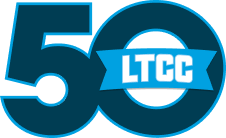CDCR FAQ
Below are the answers to commonly asked questions regarding Lake Tahoe Community College’s online Criminal Justice program for California Department of Corrections and Rehabilitation employees:
Classes are $31/quarter unit for California residents, so it depends on how many courses you take: Multiply your total units enrolled by $31. There is also a $3 Health Service fee per quarter, and a $2 Student Representation Fee per quarter. For more information, please visit the Credit & Refund Policy page.
There is no limit on “transfer in” units, but you must complete at least 18 quarter units at Lake Tahoe Community College to get a degree from the college. A minimum of 12 quarter units must be completed at LTCC to receive a Certificate from the college.
It depends on the individual person and scheduling. The Certificate is 28 quarter units; the Associate degree is 90 quarter units. Pending course availability, students enrolling in a full load could be able to complete the Certificate in one year. Degree sequences can typically take two to three years to complete, depending upon the number of units a student might be transferring in with, the availability of courses offered, and how many units per quarter they enroll in.
Fees are set at the regular, low-cost rate of $31/quarter unit for CA residents. Residency requirements (set by the California Chancellor’s Office for Community Colleges) apply to CDCR employees who wish to take coursework through Lake Tahoe Community College. Effective January 1, 2023, students from Nevada and other Participating Western States can apply for a limited annual number of CNIAA and WUE ($46.50/unit) discounted tuition waivers. For more information, call (530) 541-4660 x211 or email enrollmentservices@ltcc.edu. Visit LTCC's Forms webpage to download the application.
LTCC is on the quarter system. This means new courses are offered every couple of months!
Please contact your immediate supervisor, IST office, or Training Coordinator at CDCR. LTCC is not able to answer questions regarding CDCR policies and regulations. From the CDCR: “Only Bargaining Unit 6 staff qualifies for a salary range change upon completion of educational requirements, per the bargaining agreement. Interested individuals should refer to the current bargaining agreement or contact their personnel specialist to find out more information on salary range schedules. Choice of study and salary range change for BU6 employees is dependent on classification. Please refer to Article XV, Section 15.16 for Education Incentive Pay. In most cases, there is not a direct link between education and a promotion. An education can potentially provide an individual competitive advantage over another candidate in a competitive hiring process.”
Questions regarding On the Job (OJT) training opportunities should be directed to CDCR employees’ immediate supervisor, IST office, or Training Coordinator.
LTCC will award Credit for Prior Experiential Learning for CDCR employees who have successfully graduated from the CDCR’s Basic Correctional Officer Academy for the following courses:
- CRJ 101 Introduction to Criminal Justice (4 units)
- CRJ 110 Introduction to Corrections (4 units)
To be eligible for the 8 units of Credit for Prior Experiential Learning, CDCR employees must:
- Be registered for classes at LTCC and in good academic standing with a 2.0 GPA or higher, and
- Be verified as successful completers of the CDCR Basic Correctional Officer Academy*
*Correctional Officers must fill out a form at the academy in order for the CDCR to release that information. The process begins with the employee requesting a Training Confirmation Letter from the CDCR Curriculum Testing Office in the Office of Training & Professional Development. Once the employee has signed the release, the CDCR will send the letter directly to Lake Tahoe Community College with the information as to when they attended the academy.
The student’s academic record shall be clearly annotated to reflect that the credit was earned for prior experiential learning. Credits acquired for prior experiential learning are not applicable to meeting of such unit load requirements as Selective Service deferment, Veterans or Social Security benefits.
Credits for prior experiential learning are eligible to satisfy degree requirements for both the Criminal Justice Associate in Arts degree and the Administration of Justice Associate in Science for Transfer degree. Please note that Credits for prior experiential learning may or may not be eligible for transfer into other California Community Colleges or California State Universities, and are subject to any respective institutional policies with regards to acceptance or transfer.
Yes, LTCC offers a number of Associate Degrees for Transfer, including an Associate in Science for Transfer (AS-T) in Administration of Justice. Associate Degrees for Transfer are intended for students who plan to complete a bachelor’s degree in a similar major at a CSU campus. Students completing these degrees are guaranteed admission to the CSU system, but not a particular campus or major. Please contact a counselor for more details.
